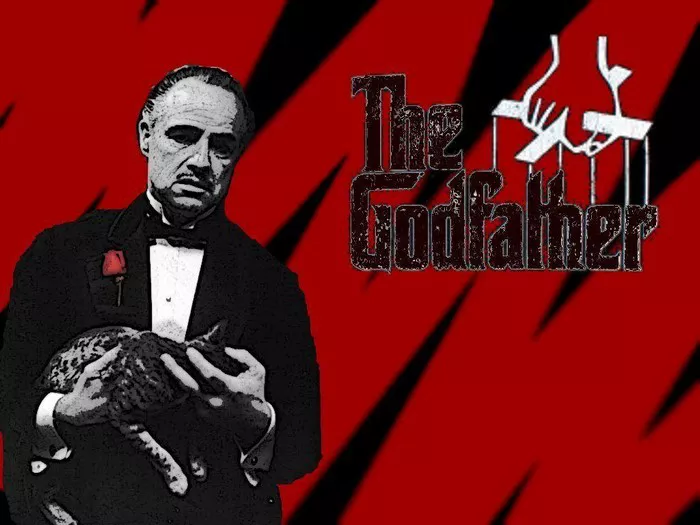In the realm of cinematic excellence, Francis Ford Coppola’s “The Godfather” trilogy stands as a cornerstone, a triumphant saga that has left an indelible mark on the landscape of filmmaking. As cinephiles and critics engage in perennial debates, one question invariably surfaces—Which Is The Best Godfather? This exploration embarks on a journey through the trilogy, dissecting the nuances of each installment, considering critical and audience reception, and ultimately seeking to unravel the timeless enigma of determining the pinnacle of cinematic brilliance.
I. The Godfather (1972): The Birth of a Cinematic Epic
1. Introduction to the Corleones: A Masterful Origin Story
“The Godfather” (1972) serves as the inaugural chapter in the trilogy, introducing audiences to the world of the Corleone family. With a stellar cast, including Marlon Brando as Don Vito Corleone and Al Pacino as Michael Corleone, the film lays the groundwork for a complex narrative exploring power, family, and morality. The impeccable storytelling and iconic performances have solidified “The Godfather” as a cinematic masterpiece.
2. Awards and Impact: The Triumph of the Original
“The Godfather” not only received critical acclaim but also made history at the Academy Awards, winning the coveted Best Picture and Best Actor for Marlon Brando. Its impact on popular culture is immeasurable, with iconic quotes and scenes becoming ingrained in the collective consciousness. The film’s influence on subsequent generations of filmmakers is a testament to its enduring legacy.
II. The Godfather Part II (1974): A Pinnacle of Sequel Brilliance
1. Parallel Narratives: Expanding the Corleone Saga
“The Godfather Part II” (1974) boldly takes the narrative in a dual direction, exploring the rise of a young Vito Corleone (Robert De Niro) while delving into the contemporary struggles of his son Michael. The film’s intricate storytelling, coupled with compelling performances, garnered widespread acclaim, securing its place as one of the greatest sequels in cinematic history.
2. Awards and Legacy: Cementing Cinematic Greatness
Following in the footsteps of its predecessor, “The Godfather Part II” clinched multiple Academy Awards, including Best Picture and Best Director for Francis Ford Coppola. The film’s narrative complexity and character development have continued to inspire filmmakers, establishing it as an integral chapter in the Godfather saga.
III. The Godfather Part III (1990): A Controversial Coda
1. Return to the Family: Michael’s Redemption Quest
“The Godfather Part III” (1990) brings the trilogy to a close, exploring Michael Corleone’s attempt at redemption in the face of past sins. While the film faced initial criticism, it has undergone reevaluation in later years, with appreciation growing for its exploration of power, regret, and the enduring consequences of a life in organized crime.
2. Critical Reception and Oscar Recognition: An Evolving Perspective*
Despite facing challenges upon its release, “The Godfather Part III” received seven Academy Award nominations, acknowledging its merits. The film’s role in concluding the Corleone saga, coupled with Al Pacino’s nuanced performance, adds a layer of complexity to the trilogy’s overarching narrative.
IV. Comparing the Best: Evaluating Critical and Audience Perspectives
1. Critical Acclaim: A Consistent Thread Across Installments
Each installment of “The Godfather” trilogy has received critical acclaim, with praise for storytelling, character development, and cinematic innovation. The consistency in maintaining high standards across three films is a testament to the creative brilliance of Francis Ford Coppola and the ensemble cast.
2. Audience Reception: The Trilogy’s Enduring Popularity
The Godfather trilogy enjoys enduring popularity among audiences, with fans passionately debating the merits of each installment. The films’ resonance is not confined to their respective release periods but has transcended generations, captivating new audiences who continue to discover the timeless allure of the Corleone family saga.
Conclusion: The Enduring Legacy of The Godfather Trilogy
In the quest to determine the best Godfather, the answer lies not in singling out one installment but in appreciating the trilogy as a cohesive, narrative tapestry. “The Godfather” trilogy, taken as a whole, represents a pinnacle of cinematic storytelling—a saga that explores the intricacies of power, family dynamics, and the consequences of choices.
The journey through “The Godfather” trilogy is akin to navigating the corridors of human experience, where each film contributes to the overarching narrative in a unique yet interconnected manner. From the birth of the Corleone legacy to the contemplative coda in “The Godfather Part III,” the trilogy offers a comprehensive exploration of the human condition.
As audiences continue to revisit the trilogy, the debate over the best Godfather will persist, with opinions shaped by personal preferences, cultural contexts, and evolving perspectives. What remains undeniable is the enduring legacy of “The Godfather” trilogy—a cinematic masterpiece that transcends individual installments and stands as a testament to the art of storytelling.
In the end, The Best Godfather is not merely a single film but the collective impact of a trilogy that has left an indelible mark on the cinematic landscape. It’s an ode to the enduring power of storytelling, where the Corleone saga continues to resonate, inviting audiences to immerse themselves in its complexities, appreciate its nuances, and discover new layers with each viewing—a timeless journey that defies the constraints of a singular “best.”

